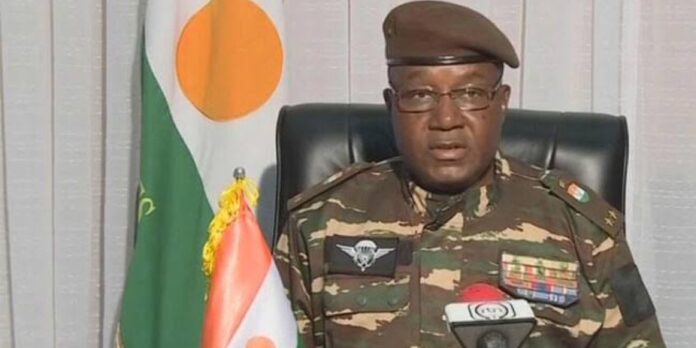The Nigerien government has summoned Nigeria’s chargé d’affaires to address accusations that Nigeria is providing support to destabilise the country, despite recent efforts to ease tensions.
In a statement broadcast on Niger state television, Foreign Minister Bakary Yaou Sangare claimed that Nigeria continues to act as a “rear base” for destabilising Niger. This follows Niger’s military takeover in 2023, which resulted in the country breaking away from the Economic Community of West African States (ECOWAS).
Yaou Sangare added that Niger was disturbed by Nigeria’s role in harbouring individuals linked to the previous government. “Despite efforts to normalise relations, we regret that Nigeria has not given up on serving as a rear base for the destabilisation of Niger with the complicity of some foreign powers and officials of the former regime, to whom it offers refuge,” he said.
This development comes just months after a brief thawing of relations between the two nations, following a period of tension after the 2023 coup. President Bola Ahmed Tinubu, who currently leads ECOWAS, had initially considered a military intervention to restore ousted President Mohamed Bazoum to power. However, in August, Nigeria and Niger resumed security cooperation under the Multinational Joint Task Force (MNJT), a regional effort involving Nigeria, Niger, Cameroon, and Chad to fight jihadist groups.
Despite the resumption of security collaboration, these recent claims of Nigeria’s involvement in destabilisation are a serious setback. Niger’s military government is battling jihadists in areas such as the Tillaberi region and Diffa, which are also near Nigeria’s borders.
“The government of Niger is determined to continue its fight against extremist groups,” said an official from Niger’s military. Niger has been dealing with violent extremist groups such as those linked to the Islamic State, Al-Qaeda, and Boko Haram. These groups have been active in the border regions between Niger and Nigeria, further complicating security efforts.
The relationship between Nigeria and Niger has been strained ever since the military coup in Niger ousted President Bazoum in 2023. The coup, which led to the suspension of Niger from ECOWAS, further deepened the divisions between the two nations. Nigeria, under President Tinubu’s leadership, has been a vocal critic of military governments in West Africa.
While ECOWAS has called for the restoration of constitutional order in Niger, the situation is far more complicated, with many African nations now divided over how to handle military takeovers in the region. Niger’s alliance with Mali and Burkina Faso has grown stronger, with the three countries forming the Alliance of Sahel States (AES) to bolster regional security and counter external influences.
This alliance, composed of military governments in Niger, Mali, and Burkina Faso, has been a point of contention for Nigeria and other ECOWAS member states. The AES has become a rival bloc to ECOWAS, and the tension between the two groups is now clearly reflected in the latest diplomatic clash.
In August, the two countries had agreed to resume security cooperation under the MNJT, which was instrumental in tackling jihadist activities. However, Niger’s latest accusations suggest that despite these agreements, Nigeria’s actions have been undermining the peace efforts.
As the political situation in Niger continues to evolve, its military government has repeatedly sought closer ties with countries in the Sahel region, particularly those with similar military governments like Mali and Burkina Faso. The AES bloc has positioned itself as an alternative to ECOWAS, which has been critical of military coups in the region.
For Nigeria, these latest claims could have wider implications on its foreign policy and relations with ECOWAS. The alliance between Mali, Burkina Faso, and Niger poses a significant challenge to the efforts of ECOWAS in ensuring stability in the region.
Political analyst, Dr. Chijioke Okonkwo, commented on the situation: “The relationship between Nigeria and Niger is becoming increasingly strained. The recent accusations by Niger’s military government could have serious diplomatic consequences, especially with Nigeria leading ECOWAS.”
The MNJT, which has been an essential tool in combating jihadist activities in the region, may also face challenges. If diplomatic relations deteriorate further, it could complicate cooperation between the four countries, affecting their ability to tackle terrorism and insecurity in the Sahel.
The future of the region remains uncertain, with Niger looking to its new allies in the AES while Nigeria and ECOWAS continue to seek a return to constitutional order in the country. The call for security cooperation and the fight against jihadist groups will likely take a backseat if these diplomatic tensions continue.
Nigeria’s role in the region has always been one of leadership and cooperation, especially with neighbouring countries in the fight against extremism. However, this latest rift with Niger could potentially undermine Nigeria’s standing in the Sahel and in ECOWAS.

